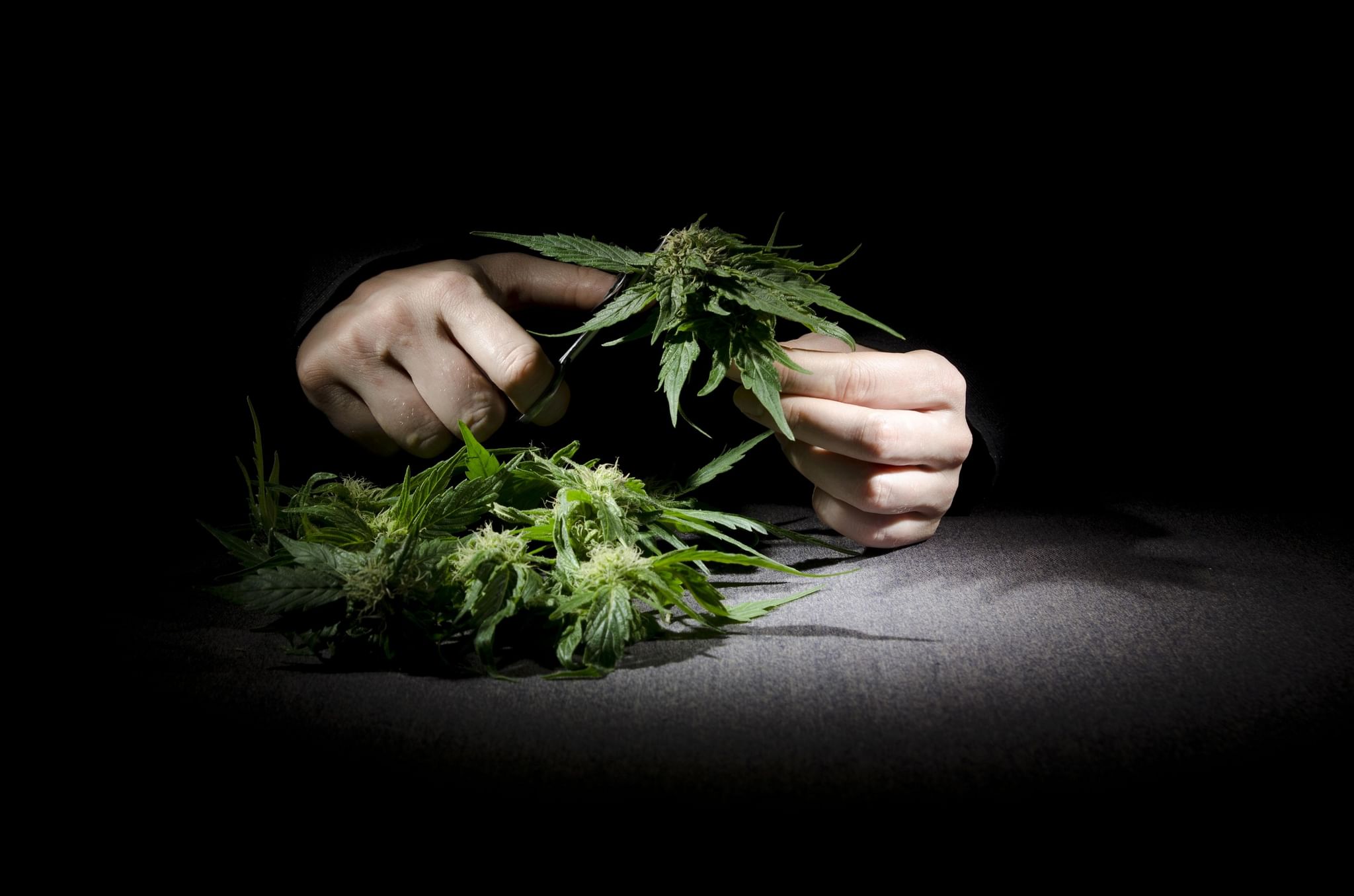Marijuana Addiction Symptoms & Withdrawal
Immediate
Placement Available at our Top-Rated Treatment Centers.
Please call us at (855) 410-4488. We work
with most major insurance providers and offer flexible payment
options!
Atrium Addiction Care offers a variety of treatment choices and programs for individuals struggling with drug or alcohol addiction. Our inpatient treatment programs are designed for those who have more severe substance use problems and require 24-hour care. We admit both voluntary and involuntary patients.

Marijuana, also known as cannabis, is the most commonly used illicit drug in the world. It has been legalized for medical and/or recreational use in many states of the United States and other countries. Despite its legalization, marijuana addiction remains a significant public health concern.
Addiction to marijuana can lead to various physical, psychological, and social problems. Withdrawal symptoms are common when an individual abruptly stops using marijuana after prolonged use. Thus, understanding the symptoms of marijuana addiction and withdrawal is crucial for early identification and intervention.
In this article, we will explore the signs and symptoms of marijuana addiction and withdrawal, along with effective treatment options available at Atrium Addiction Care.
Understanding Marijuana Use Disorder
Marijuana addiction, also known as cannabis use disorder, is a common form of substance abuse. It occurs when an individual uses marijuana compulsively and experiences negative consequences from their use. Addiction symptoms can include increased tolerance to the drug, withdrawal symptoms when trying to stop using, and continued use despite negative consequences.
Withdrawal symptoms associated with marijuana addiction may include irritability, anxiety, insomnia, decreased appetite, and physical discomfort. These symptoms typically occur within 24-72 hours after quitting or reducing marijuana use and can last for up to two weeks. While they are not usually life-threatening, they can be uncomfortable enough to make it difficult for individuals to quit on their own.
Fortunately, treatment options exist for those struggling with marijuana addiction. A comprehensive treatment program will address both the physical and psychological aspects of addiction through medication-assisted detoxification and behavioral therapy techniques such as cognitive-behavioral therapy (CBT). With proper care and support, individuals can overcome their addiction and lead healthy lives free from the negative effects of substance abuse.
Physical Symptoms Of Marijuana Addiction
Marijuana addiction is a form of substance abuse that can lead to several physical and psychological symptoms. Withdrawal from marijuana use may cause significant distress to the patient, leading them to seek treatment at specialized care centers.
Physical symptoms associated with marijuana addiction include increased heart rate, bloodshot eyes, dry mouth, impaired memory, and respiratory problems. Withdrawal from marijuana addiction may cause patients to experience physical discomforts such as headaches, nausea, vomiting, abdominal pain, sweating, chills or shaking; these symptoms are commonly referred to as cannabis withdrawal syndrome (CWS). In severe cases where patients have been using high doses for long periods it can also result in hallucinations.
Treatment centers offer various therapies that help individuals overcome their addiction by addressing both the physical and psychological aspects of drug dependence. Cognitive-behavioral therapy (CBT) has been shown to be effective in treating marijuana addiction. The goal is to increase awareness among the patients about their substance use patterns while providing coping strategies for dealing with triggers that prompt relapse.
Other approaches used include motivational interviewing which helps clients identify goals and values that motivate them towards recovery. Having discussed the physical symptoms of marijuana addiction in the previous section, it is important to shed light on the psychological symptoms that accompany cannabis addiction.
Psychological symptoms of marijuana addiction are diverse and can severely impact an individual's quality of life. Some individuals may experience mood swings, depression, anxiety, or paranoia as a result of being addicted to marijuana.
Withdrawal from marijuana addiction can also contribute to numerous psychological symptoms such as irritability, insomnia, decreased appetite and restlessness. These withdrawal symptoms can last for up to two weeks after discontinuing use of the drug.
Moreover, some studies suggest that long-term usage of marijuana may lead to memory impairment and cognitive decline.
In conclusion, understanding the various symptoms of marijuana addiction is crucial in identifying when someone needs help with their cannabis dependency. Treatment options like behavioral therapy might be required if these symptoms persist over time.
It is essential for people struggling with substance abuse disorder to seek professional assistance before their condition worsens.
Withdrawal Symptoms And Timeline
When an individual with marijuana addiction decides to quit using the drug, they may experience withdrawal symptoms. The severity of these symptoms varies from person to person and depends on several factors such as frequency of use, amount used, duration of use, and method of consumption. Withdrawal is a natural response of the body when it is deprived of any substance that has become routine for it.
Marijuana withdrawal symptoms typically begin 1-3 days after quitting and can last up to two weeks or longer depending on the level of addiction. Common withdrawal symptoms include irritability, anxiety, depression, insomnia, loss of appetite, nausea, headaches, sweating, chills, tremors and muscle spasms. In some cases, individuals may also experience more severe physical symptoms such as fever or seizures.
While going through marijuana withdrawal can be difficult and uncomfortable, there are treatment programs available to help people manage their symptoms effectively. A residential treatment program provides a safe environment where medical professionals can monitor patients' progress throughout their recovery journey. Detoxification followed by counseling sessions is effective in helping individuals overcome their addiction problems.
The timeline for marijuana withdrawal varies from person to person based on many factors including how long they have been using drugs; however most will start seeing improvements within 2 weeks after quitting cannabis. It is important to note that overcoming marijuana addiction requires dedication and hard work but it ultimately leads towards a healthier life free from dependence on substances.
Treatment Options For Marijuana Addiction

Marijuana addiction is a serious problem that can have devastating effects on an individual's physical and mental health. Withdrawal symptoms, such as irritability, anxiety, insomnia, and decreased appetite, can be difficult to manage without professional help. It is important for individuals struggling with marijuana addiction to seek treatment options.
Addiction treatment programs offer various approaches to treating marijuana addiction. One common approach is behavioral therapy, which helps individuals identify the triggers for their drug use and develop coping mechanisms to resist cravings. Another option is medication-assisted treatment, which uses medications like buprenorphine or naltrexone to reduce withdrawal symptoms and decrease the risk of relapse. These treatments are often combined with counseling or support groups to address underlying mental health disorders.
It is important to note that not all treatment options work for everyone. Some individuals may require more intensive care in a residential facility while others may benefit from outpatient services. The key is finding a personalized plan that addresses an individual's unique needs and circumstances.
With proper treatment and support, it is possible for those struggling with marijuana addiction to overcome this challenge and achieve long-term recovery.
Seeking Help At Atrium Addiction Care
Atrium Addiction Care offers a variety of treatment programs to individuals struggling with marijuana addiction. These programs are tailored to address the individual's specific needs and may include a combination of counseling, support groups, and medication. Support groups are an important part of the recovery process and Atrium Addiction Care offers a wide range of support groups to help individuals stay on track with their recovery.
In addition to support groups, Atrium Addiction Care also offers mental health services such as individual and group therapy. These services are designed to address the underlying causes of addiction and provide individuals with the tools they need to maintain sobriety. Atrium Addiction Care is dedicated to providing comprehensive treatment and support to individuals struggling with marijuana addiction.
Treatment Programs

Marijuana addiction symptoms can be debilitating, and withdrawal can cause severe discomfort. Seeking help at Atrium Addiction Care is a step in the right direction for those struggling with marijuana addiction. The facility offers several treatment programs that are tailored to meet individual needs and preferences.
One of the most effective approaches to dealing with marijuana addiction is through addiction treatment. This program helps individuals learn how to cope with cravings and triggers while building healthy habits that support recovery. At Atrium Addiction Care, patients undergo intensive therapy sessions, including cognitive-behavioral therapy (CBT) and motivational enhancement therapy (MET). These evidence-based therapies aim to teach patients new coping strategies, problem-solving skills, and ways to manage stress without relying on drugs.
For some patients, drug detox may be necessary before starting any other form of treatment. Marijuana detox involves gradually reducing the amount of THC in a patient's system until it is completely cleared out. This process can take anywhere from a few days to several weeks depending on the severity of the addiction.
After deTreatment-programstoxification, patients usually enter an addiction treatment program where they receive ongoing care and support as they work towards long-term recovery goals.
In conclusion, seeking help at Atrium Addiction Care provides individuals with access to quality treatment programs designed specifically for those suffering from marijuana addiction symptoms. Through personalized care plans that cater to individual needs and preferences, patients receive comprehensive care that addresses all aspects of their condition. Whether undergoing drug detox or participating in an addiction treatment program, patients have access to professional staff who understand what it takes to overcome marijuana addiction successfully.
Support Groups
Another effective way to deal with marijuana addiction is through the support of peer groups. At Atrium Addiction Care, patients have access to support groups where they can connect with others who are going through similar experiences.
These groups provide a space for individuals to share their struggles and successes in recovery while receiving encouragement and accountability from their peers. Support groups offer several benefits that complement formal treatment programs.
For instance, group members can learn from one another's experiences, receive practical advice on how to handle withdrawal symptoms, build social connections, and gain motivation and inspiration from other people's stories of success in overcoming addiction.
Additionally, participating in online therapy sessions may be an option for those who cannot attend physical meetings due to distance or time constraints. In conclusion, seeking help at Atrium Addiction Care provides not only professional care but also opportunities for patients to join supportive communities that foster long-term recovery.
Support groups can play a critical role in helping individuals overcome marijuana addiction by providing a safe environment where they can find comfort and guidance as they navigate the challenges of recovery. By combining formal treatment programs with the power of community support, patients increase their chances of achieving lasting freedom from addiction.
Mental Health Services
In addition to support groups, seeking help at Atrium Addiction Care also provides access to mental health services for individuals struggling with marijuana addiction. These services are crucial in addressing the complex nature of substance use disorders and cooccurring mental health conditions. Marijuana addiction symptoms can include mood swings, anxiety, depression, and difficulty sleeping. Withdrawal from marijuana can also cause these symptoms to intensify.
Mental health services offered by Atrium Addiction Care aim to address these issues through individual therapy sessions and medication management if necessary. Furthermore, many individuals who struggle with addiction often have underlying mental health conditions that need to be addressed alongside their substance use disorder.
Atrium Addiction Care's team of medical professionals is equipped to provide comprehensive care for both addiction and cooccurring mental health disorders, increasing the chances of successful long-term recovery.
Personalized Care For Lasting Recovery - cannabis withdrawal syndrome
A holistic approach to treatment for marijuana addiction symptoms and withdrawal is an important component of any recovery program. This approach typically includes individual therapy, which helps people to identify and address underlying issues that led to their addiction.
Individual therapy sessions provide an opportunity for the patient to explore their thoughts, feelings, and behaviors, and to develop strategies for managing their recovery. Furthermore, individual therapy can be tailored to meet the needs of each patient, making it an important part of a personalized care program.
Holistic Treatment - marijuana addiction symptoms withdrawals
Holistic treatment is becoming increasingly popular in drug addiction programs, especially for individuals who are struggling with marijuana addiction symptoms and withdrawal. Holistic treatment refers to a form of therapy that considers the person as a whole rather than just their addiction and involves treating not only the physical aspects but also mental, emotional, social, and spiritual components.
This type of approach provides patients with personalized care that focuses on addressing all underlying issues that contribute to their addiction. A holistic treatment programme often includes various therapies such as acupuncture, massage therapy, yoga, meditation, and nutritional counselling alongside traditional evidence-based treatments like cognitive-behavioral therapy (CBT) and motivational interviewing.
These alternative therapies help alleviate stress levels while improving mood and sleep patterns during the challenging process of overcoming marijuana addiction symptoms and withdrawal. Moreover, they assist in restoring balance to an individual's overall health leading to improved chances of long-term recovery.
In conclusion, it's essential for professionals working within drug addiction care facilities to provide customized treatments by considering each patient's unique needs. The use of holistic approaches has proven effective in addressing both physical and psychological issues associated with substance abuse disorders such as marijuana addiction symptoms and withdrawal.
By incorporating complementary therapies into traditional evidence-based practices, individuals can receive more comprehensive care resulting in greater success rates towards lasting recovery.
Individual Therapy - cannabis withdrawal symptoms
Another essential aspect of personalized care for lasting recovery is individual therapy. It's a form of treatment that helps individuals struggling with marijuana addiction symptoms and cannabis withdrawal by addressing their specific needs in a one-on-one setting. This approach allows the therapist to understand the patient's unique situation, identify underlying issues contributing to their addiction and work collaboratively towards overcoming them.
Individual therapy involves various evidence-based techniques such as cognitive-behavioral therapy (CBT), which has proven effective in treating substance abuse disorders like marijuana addiction. CBT aims to modify negative thought patterns that lead to maladaptive behaviors associated with drug use. Additionally, it equips patients with coping strategies and skills necessary for relapse prevention, leading to long-term recovery success.
In conclusion, individual therapy is an integral part of providing personalized care for those seeking lasting recovery from marijuana addiction symptoms and withdrawal. By tailoring treatments based on each person's specific needs, therapists can help individuals overcome their challenges while promoting self-awareness, empowerment, and motivation towards sustained sobriety.
Conclusion - cannabis withdrawal
Marijuana use disorder is a serious condition that affects individuals who consume excessive amounts of marijuana regularly. The physical and psychological symptoms of addiction can lead to withdrawal symptoms, making it difficult for users to quit on their own.
Withdrawal from marijuana can cause irritability, anxiety, insomnia, and other uncomfortable symptoms. Treatment options include behavioral therapy, support groups, and medication-assisted treatment. At Atrium Addiction Care, we offer personalized care for lasting recovery from marijuana addiction. Our team of experts provides evidence-based treatments tailored to individual needs.
With our comprehensive approach to addiction treatment, clients receive the tools they need to manage cravings and overcome triggers associated with drug use. We believe in empowering clients through education and counseling so that they may achieve long-term sobriety. If you or a loved one are struggling with marijuana addiction, contact us today for compassionate care and support towards healing and recovery.
